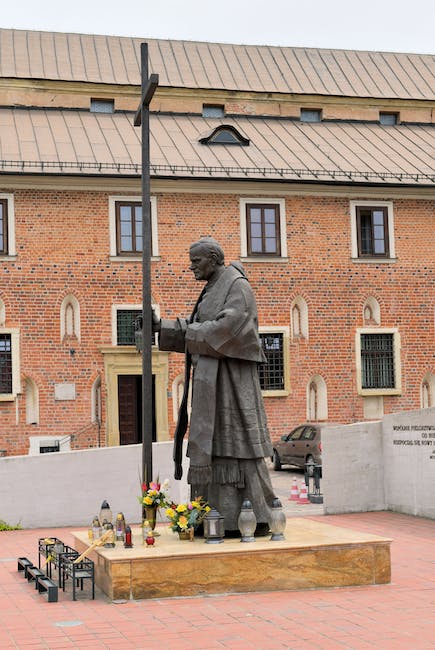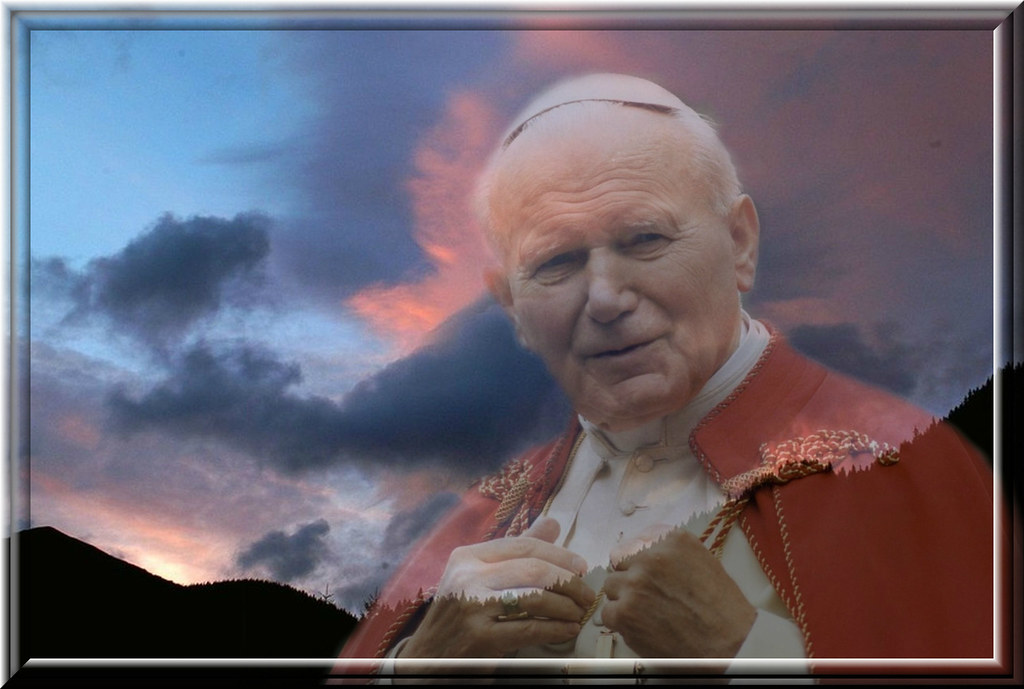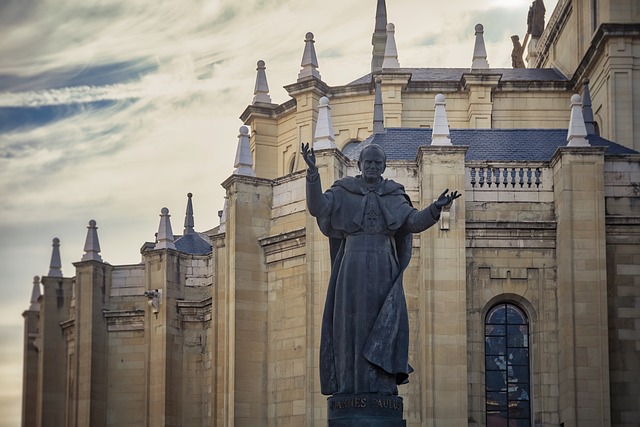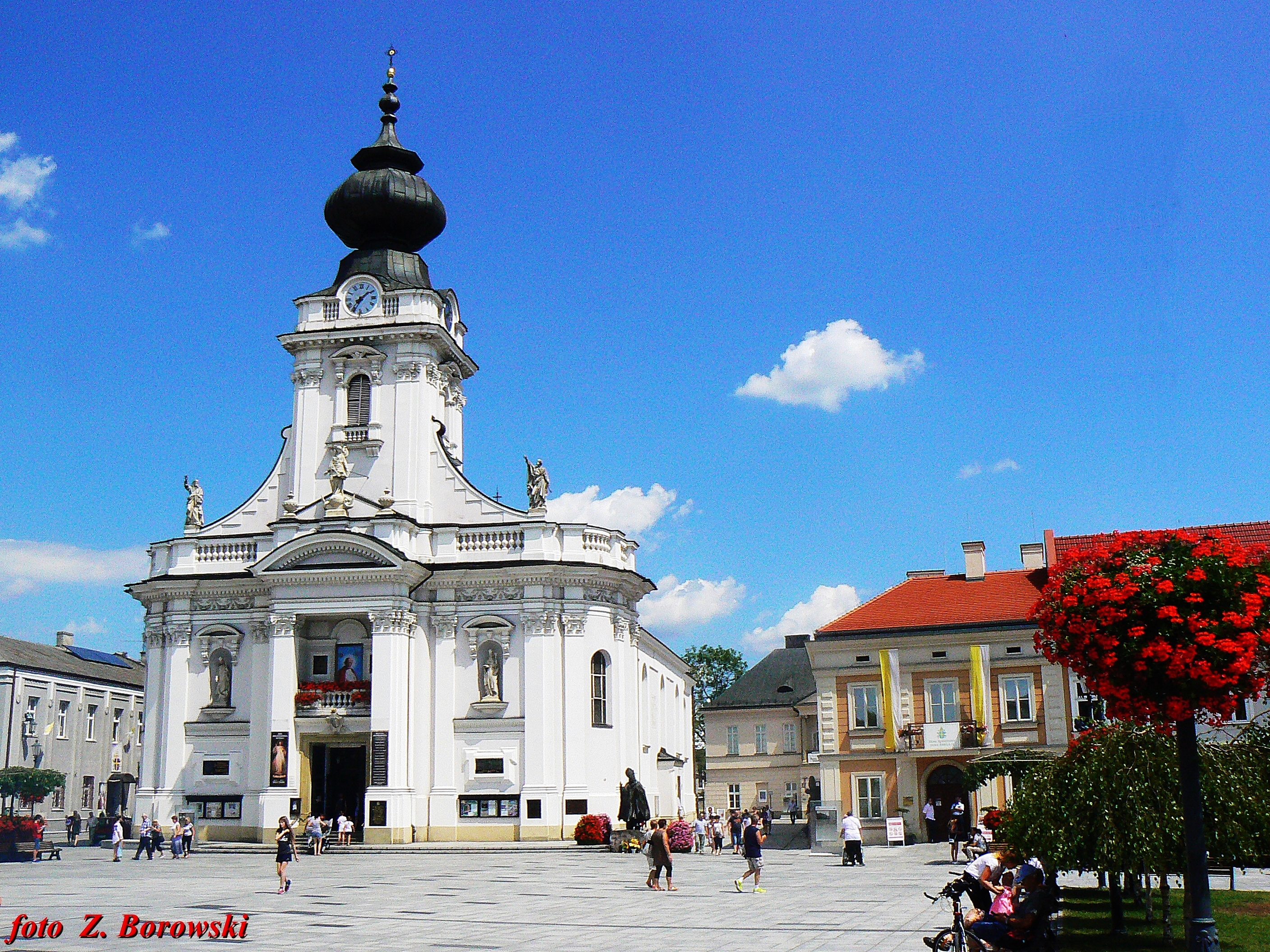The world has witnessed the rise of extraordinary leaders whose influence and impact transcend borders, culture, and time. In the realm of religious figures, few individuals have left as indelible a mark on history as Pope John Paul II, a luminary whose captivating presence and groundbreaking reign transformed the very essence of the Catholic Church. Born Karol Józef Wojtyła on May 18, 1920, in Wadowice, Poland, this enigmatic spiritual leader’s journey would unfold in a way that transcended his humble beginnings, elevating him to the status of a true Polish icon. With his unwavering faith, profound intellect, and magnetic charisma, Pope John Paul II became a beacon of hope and inspiration for millions, enriching souls far beyond the boundaries of the Vatican. As we delve into the extraordinary life and enduring legacy of this iconic figure, we come face to face with a man whose fundamental teachings transcend religious dogma and embody the universal pursuit of love, justice, and human dignity. In this article, we embark on a transcendent exploration of Pope John Paul II’s life, personality, and lasting influence that continues to touch our hearts and minds, forever etching his immortal legacy into the annals of history.
The Early Life and Journey of Pope John Paul II: From Wadowice to Vatican City
The Early Life and Journey of Pope John Paul II
Born on May 18, 1920, in the picturesque town of Wadowice, Poland, Karol Józef Wojtyła experienced a childhood marked by both joy and tragedy. Growing up in a devout Catholic family, he was raised to prioritize his faith and education. His journey towards the highest echelons of the Roman Catholic Church was one of perseverance and resilience, shaped by his formative years amidst a world engulfed in the turbulence of World War II.
Despite losing his mother, Emilia, at the tender age of 9 and his beloved older brother, Edmund, just three years later, young Karol found solace in his studies and his unwavering faith. Through his deep love for theater and literature, he developed a profound appreciation for art and culture that would become a defining aspect of his pontificate. These early passions infused his charismatic personality, as he delivered powerful sermons and spoke to millions around the globe with a unique blend of intellectual rigor and heartfelt compassion.
- A childhood marked by tragedy and deep faith
- The importance of education and Catholicism in his upbringing
- Early love for theater and literature shaping his character
- Speaking with intellectual rigor and heartfelt compassion
As his life’s journey unfolded, Karol Józef Wojtyła transitioned from an aspiring actor to a dedicated priest. His remarkable ascent took him through the ranks of the Catholic Church, ultimately becoming the Archbishop of Krakow and a cardinal. It was in 1978 that his trajectory reached unprecedented heights when he was elected as the first non-Italian pontiff in 455 years, taking on the name John Paul II. From that moment forward, he embarked on a mission to connect humanity, tirelessly traveling the world, engaging with people of various cultures and backgrounds, and promoting dialogue among religions. His influential papacy left an indelible mark on the Church and the world, making him one of the most revered figures of the 20th century.

Exploring Pope John Paul II’s Impact on Polish Identity and Catholicism
When reflecting on the profound impact of Pope John Paul II on Polish identity and Catholicism, it becomes evident that his influence reached far beyond the boundaries of his beloved homeland. Through his papacy, he not only became a symbol of hope and inspiration for the Polish people, but also played a crucial role in shaping the course of Catholicism on a global scale. Here are some key aspects of his legacy:
- Strengthening Polish Identity: Pope John Paul II’s papacy provided a sense of unity and pride to the Polish people during a time of political and social turmoil. His unwavering faith and courageous stance against the oppressive communist regime resonated deeply with the nation, giving them a renewed sense of national identity and resilience. He was a living testament to the power of faith and the importance of religious freedom.
- Promoting Interfaith Dialogue: One of Pope John Paul II’s most notable contributions was his commitment to building bridges between different faiths and cultures. Recognizing the importance of dialogue, he actively engaged in conversations with leaders from other religions, promoting understanding and respect. His efforts to foster interfaith dialogue both within Poland and across the world contributed to a more inclusive and peaceful society.
In conclusion, Pope John Paul II’s impact on Polish identity and Catholicism cannot be overstated. From his role in strengthening Polish identity to his efforts in promoting interfaith dialogue, he left an indelible mark on both his homeland and the global Catholic community. His legacy serves as a reminder of the power of faith to transcend borders, bring people together, and ignite positive change in the world.

The Legacy of Pope John Paul II: Lessons in Faith, Diplomacy, and Social Justice
Faith:
Pope John Paul II was a beacon of unwavering faith, inspiring millions around the world with his devotion to God. His steadfast belief in the power of prayer and the importance of nurturing one’s spiritual life serves as a profound lesson. He emphasized the significance of religious freedom and the need for interfaith dialogue, promoting harmony among different religions. Pope John Paul II’s teachings instilled hope, encouraging individuals to cultivate their own faith and seek divine guidance during challenging times.
Diplomacy:
Pope John Paul II and his papacy will forever be remembered for their significant impact on global diplomacy. He understood the importance of fostering positive relationships between nations, transcending political differences and urging leaders to prioritize dialogue over conflict. Through countless visits to various countries, the Pope symbolized unity and reconciliation, strengthening international ties. His firm stance on human rights and dedication to promoting peace served as an inspiration not only to Catholics but also to leaders of all faiths. The Pope’s diplomatic efforts demonstrated that compassion, understanding, and respectful dialogue are essential for resolving conflicts and achieving lasting peace.

Reflections on Pope John Paul II’s Teachings: Inspiring Messages for a Modern World
Pope John Paul II, an iconic figure who served as the head of the Catholic Church for over a quarter of a century, left behind a profound legacy of teachings that continue to resonate with people from all walks of life, regardless of their religious beliefs. His words of wisdom and guidance are not bound by time or space, but rather offer timeless principles that can enrich our lives in the modern world.
One of the most inspiring messages that Pope John Paul II conveyed is the importance of compassion and empathy towards our fellow human beings. In a world that can sometimes feel cold and disconnected, his teachings remind us to see the inherent dignity and worth in each individual. Through his writings and speeches, he emphasized the need to build relationships based on love, understanding, and respect. His call for inclusivity, particularly towards marginalized communities, serves as a powerful reminder that we should strive for a society that embraces diversity and upholds the rights and dignity of every person.
In Summary
As the sun sets on the life and legacy of Pope John Paul II, we are left in awe of the extraordinary man who captured the hearts and minds of millions around the world. Born Karol Józef Wojtyła in the small town of Wadowice, Poland, few could have predicted the immense impact he would have on the Catholic Church and beyond. His journey from humble beginnings to becoming the first Slavic pope left an indelible mark on history.
Pope John Paul II radiated a charisma that transcended boundaries, captivating both believers and non-believers alike. His unwavering commitment to faith, freedom, and social justice fueled a wave of change that rippled across continents. Through his teachings, he encouraged a deeper understanding and respect for all faiths, emphasizing the importance of unity and dialogue in a time of rising conflicts.
His papacy was marked by a tireless dedication to the marginalized and the oppressed. Whether it was advocating for the end of apartheid in South Africa, fostering interfaith harmony in the Middle East, or condemning human rights abuses, he fearlessly spoke truth to power. His courageous stance against communism served as a rallying cry for millions in Eastern Europe, ultimately playing a significant role in the downfall of the Iron Curtain.
Beyond his formidable presence on the international stage, Pope John Paul II’s intimate connection with his homeland made him an iconic figure in Poland. His visits to his beloved country brought hope and renewed spirit to a nation yearning for change. His solidarity with the Polish people during the oppressive communist regime provided a beacon of hope in the darkest of times.
Although his papacy was not without controversy, with some criticizing his more orthodox stances on certain social issues, Pope John Paul II’s unwavering commitment to his beliefs remained unquestionable. His profound humility, intellectual prowess, and unwavering faith were the pillars upon which he built his legacy.
Today, we remember Pope John Paul II, not only as a towering figure within the Catholic Church but as a symbol of hope, resilience, and the profound impact one individual can have on the world. The marks he left on our hearts and in the annals of history will endure, as his indomitable spirit continues to inspire generations to come. As we bid farewell to this Polish icon, we are reminded of the power of faith, love, and the capacity for profound change within each and every one of us.

